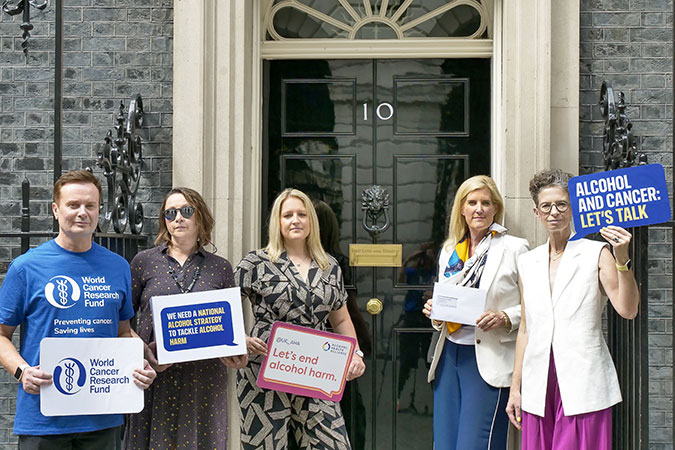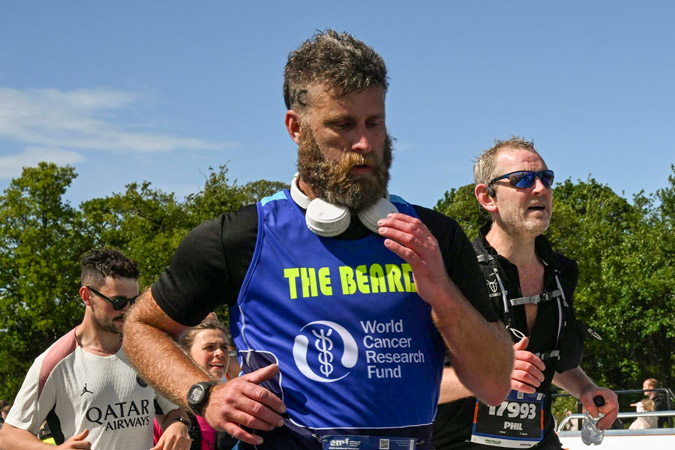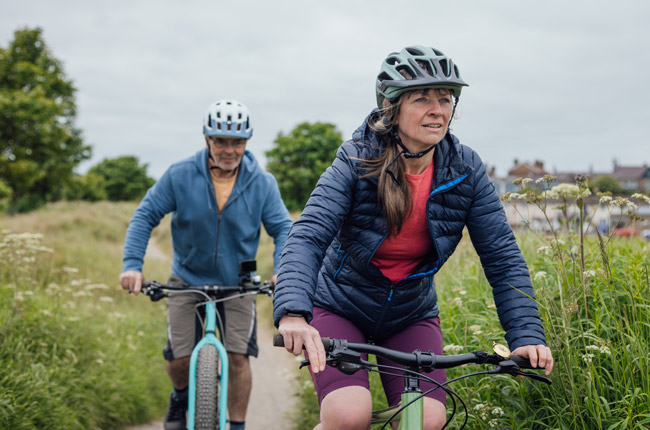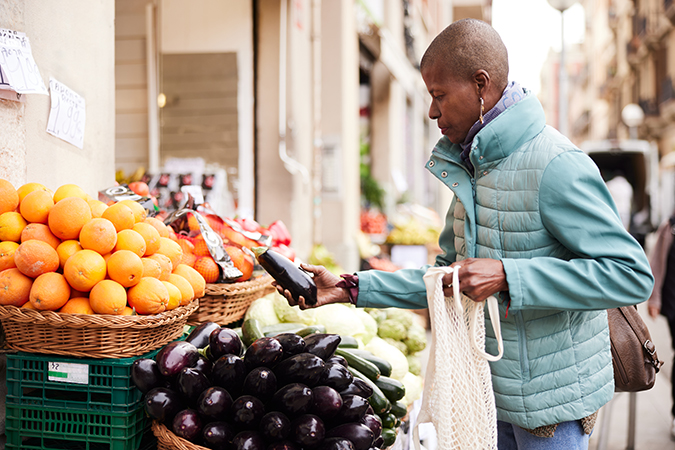A comprehensive analysis published today in JNCI Cancer Spectrum found strong evidence that physical activity can improve the quality of life* of women diagnosed with breast cancer, especially after they have finished their primary treatment. Improvements were seen across different areas of wellbeing including physical and emotional health.
As part of World Cancer Research Fund International’s Global Cancer Update Programme, the analysis, which was carried out at Imperial College London, evaluated all the published research available worldwide on physical activity and whether it improves quality of life among women with breast cancer. The analysis included data on 14,554 breast cancer patients from 79 studies and the evidence was then judged by an independent Expert Panel.
In 2020, breast cancer was the most common cancer and the leading cause of cancer death in women globally, with 2.3 million incident cases and 700,000 deaths estimated. As of the end of 2020, there were 7.8 million women worldwide who had survived at least 5 years after a breast cancer diagnosis.
Opportunities for future research
More questions remain, however, regarding exactly what type, amount and timing of physical activity make a difference to quality of life in women living with and beyond breast cancer. Future research should focus on these areas. Until more is understood about these unknowns, women living with breast cancer should aim to follow the general population’s national guidelines for physical activity, under the guidance of their healthcare team.
Dr Panagiota Mitrou, Director of Research and Innovation at World Cancer Research Fund, said:
Women are living longer after a diagnosis of breast cancer than ever before, due to earlier detection and improved treatment. It is crucial that as well as living longer, women have a good quality of life. This study has important implications for clinical settings and for guiding future research in this area.
What we really need to see now is more research into exactly what types of exercise and how long women should be exercising for when it comes to quality of life and breast cancer. This would allow us to develop more specific guidance for women living with and beyond cancer.
Dr Doris Chan, study co-author at Imperial College London, said:
The findings from this review, supported by the judgement of an independent Expert Panel, support the need for physical activity being routinely incorporated into clinical care for women living with and beyond breast cancer to improve their quality of life.
There are many myths about behavioural factors and cancer, making it hard for people to know what they should believe. That’s why World Cancer Research Fund has a section on its website that answers the most common questions about diet and exercise during cancer treatment. This has been developed in partnership with the British Dietetic Association Oncology Specialist Group and the National Institute for Health and Care Research’s Cancer & Nutrition Collaboration.
Jodie Burdett (39), from Essex, UK, was diagnosed with breast cancer in 2015, and runs yoga classes for people with a cancer diagnosis. She said:
It is great to see that exercise is recommended for women living with breast cancer. Exercise and yoga helped me to adapt and reconnect to the changes in my body. My energy levels increased and, as I built up my strength and confidence, my quality of life improved as I was able to do more, and was less anxious and worried.
After a cancer diagnosis, and the treatment that follows, you worry about how much exercise you can do and if it’s good for you, especially if you’ve had operations and radiotherapy. Fear can creep in. It’s important that this research is communicated: that after a cancer diagnosis physical activity is vital for both mind and body. As long as you listen to your body and don’t strive beyond your limits, you can enjoy a fulfilled life.
Ends
For a copy of the research paper and media enquiries contact Diana Mackie, Head of Communications at World Cancer Research Fund: d.mackie@wcrf.org / 07879 483022
Notes to editors
More detailed information about this review can be found here.
* The study looked at health-related quality of life – in the release we use quality of life for simplicity. Health-related quality of life is a measure encompassing factors including general health, physical wellbeing and mental health.
According to the WHO, adults should do at least 150–300 minutes of moderate-intensity aerobic physical activity; or at least 75–150 minutes of vigorous-intensity aerobic physical activity; or an equivalent combination of moderate- and vigorous-intensity activity, throughout the week, for substantial health benefits.
About the Global Cancer Update Programme
World Cancer Research Fund International’s flagship Global Cancer Update Programme provides an analysis of international scientific research into how diet, nutrition, physical activity and weight affect cancer risk and survival. The programme is produced in partnership with American Institute for Cancer Research, World Cancer Research Fund in the UK and Wereld Kanker Onderzoek Fonds in the Netherlands.
The Global Cancer Update Programme has built the largest cancer prevention database in the world, housed at Imperial College London. It is the only authoritative scientific resource of its kind, is evaluated by an independent panel of leading cancer experts, and contains approximately 12,000 papers on cancer prevention and survival.
About World Cancer Research Fund International
World Cancer Research Fund International examines how diet, nutrition, body weight and physical activity affect your risk of developing and surviving cancer. As part of an international network of charities, we have been funding life-saving research, influencing global public health policy, and educating the public since 1982.
While society continues searching for a cure, our prevention and survival work is helping people live longer, happier, healthier lives – free from the devastating effects of cancer.
Preventing Cancer. Saving Lives
About Imperial College London
Imperial College London is one of the world’s leading universities. The College’s 20,000 students and 8,000 staff are working to solve the biggest challenges in science, medicine, engineering and business.
Imperial is University of the Year 2022 in the Times and Sunday Times Good University Guide. It is the world’s 5th most international university, according to Times Higher Education, with academic ties to more than 150 countries. Reuters named the College as the UK’s most innovative university because of its exceptional entrepreneurial culture and ties to industry.
Imperial has a greater proportion of world-leading research than any other UK university, according to the Research Excellence Framework. Imperial ranks 1st in the UK for research outputs, 1st in the UK for research environment, and 1st for research impact among Russell Group universities.







